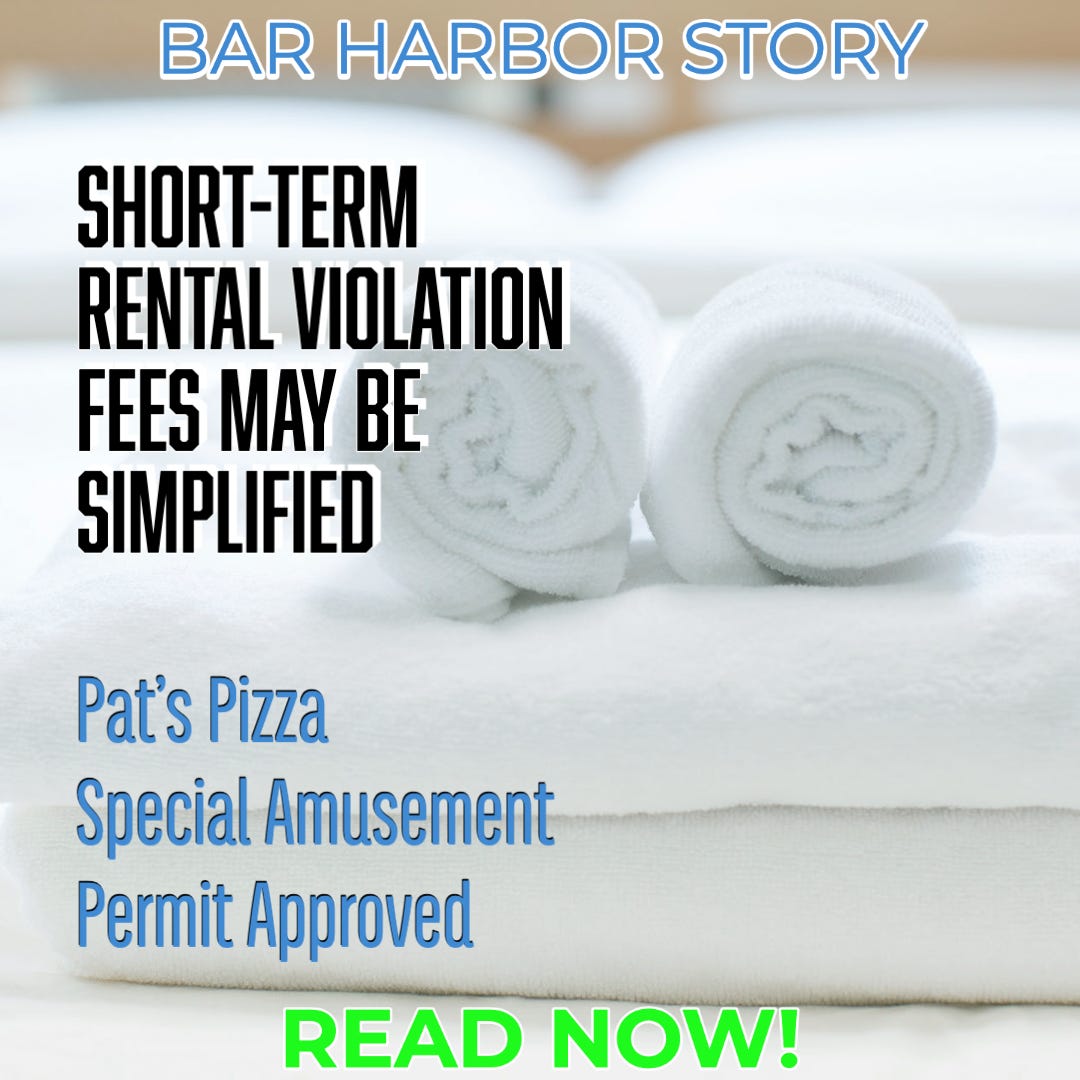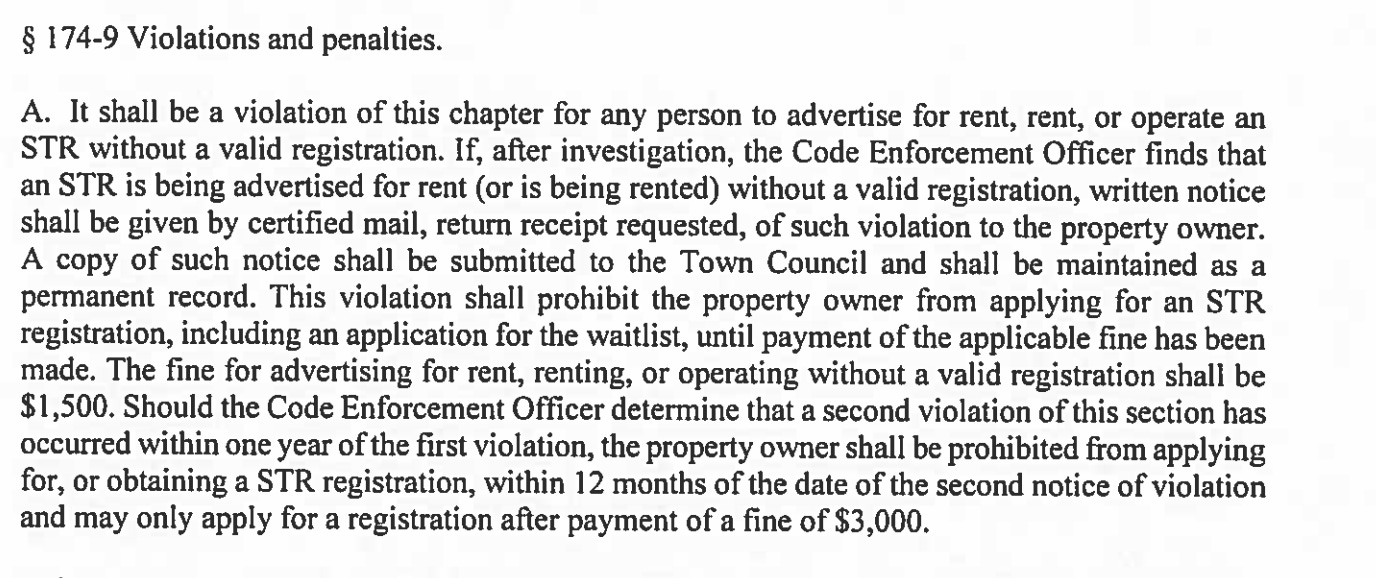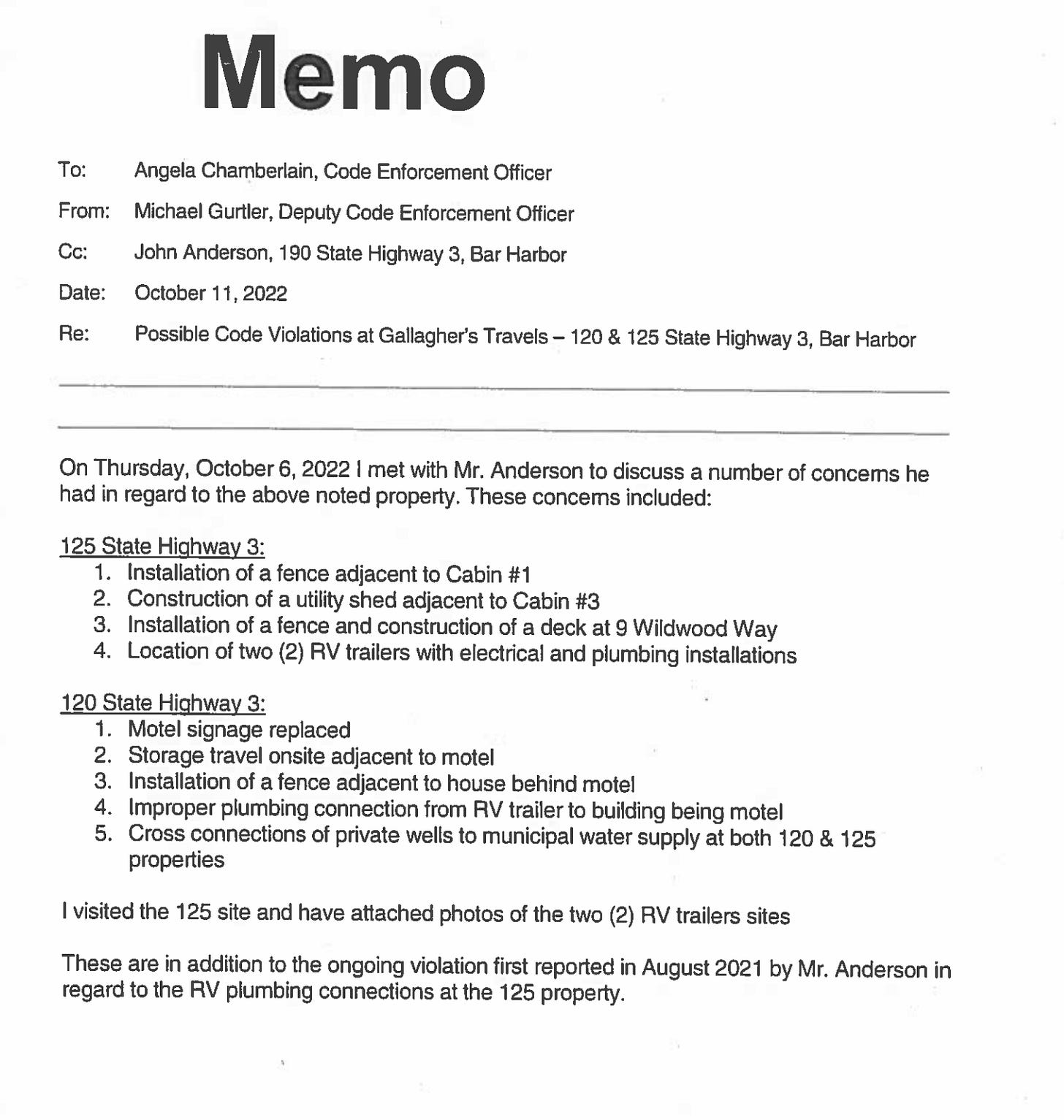Pat’s Pizza Special Amusement Permit Approved

BAR HARBOR—If voters agree in June, the Short Term Rental Registration Ordinance may get a tiny bit simpler for town staff to enforce.
Last fall, Code Enforcement Officer Angela Chamberlain found a property owner who was advertising their dwelling for short term rentals. They’d had a registration before, but didn’t renew that registration before the town’s May 31, 2022 deadline, so they did not have a valid registration for the rest of that year.
Via certified mail, Chamberlain notified the property owner who then contacted her. It wasn’t the homeowner’s primary residence, so they could not have a VR-1, which doesn’t have the VR-2 requirements. The owner is now on the waitlist for VR-2, which is a residence that isn’t the property owner’s primary residence.
The town code also says that a property owner can’t apply for a registration until 12 months after the property owner pays the town fine.
Chamberlain wrote in a memo to Town Manager Kevin Sutherland and Planning Director Michele Gagnon,
“To determine the fine, I reviewed the property owner’s STR (short-term rental) online listing and calendar. Unfortunately, it is difficult to make a finding that a dwelling unit was operated as a STR solely based on their online calendar being marked as unavailable, particularly when a specific number of days of operation is needed to calculate a fine. Their calendar could have been marked as unavailable because they had family using the space, or maybe the space isn’t rented for an entire summer season. There could be any number of reasons that the specific days of operation cannot be determined from the online calendar. While this is an imperfect option, it’s really our only means of determining the number of days.”
If she determined that the owner rented that dwelling from their first day of violation (June 1) through to just September 1, those 92 days ($250 a day) would create a $23,000 fine. That fine, she said, would be hard to collect via voluntary compliance. If it wasn’t collected, the Town Council could authorize court action. But Chamberlain wrote, “I am not confident that the court would find in our favor based on the process in which I calculated the number of days the property owner was in violation.”
Instead, she suggested, the fine for a first-time offense would be $1,500, but if a property owner was cited again within 12 months, the fee would then be $3,000. This would not just be for this property owner, but for all who had the same type of violation.

Chamberlain said the flat fee is easier to apply, to calculate, is more in line with the town’s other penalties and fines for “after the fact” permits. She also believes property owners would comply with that flat fee more easily.
“I actually think this is going to be better for the public,” Chamberlain said when Councilor Jill Goldthwait asked if there was going to be any pushback about the change.
Councilor Gary Friedmann said the fine is substantial, but less than one week’s typical rental. Chamberlain will bring the drafted language back for more comment and eventually a public hearing. That date was not yet scheduled.
PAT’S PIZZA SPECIAL AMUSEMENT APPLICATION APPROVED
The third time was the charm for Pat’s Pizza’s special amusement permit application as the council unanimously passed the restaurant’s request for a new Class 1ad permit, submitted by Josh Fowler. That permit allows for a single musician with mechanical amplification and dancing.
An earlier application for a larger class of permit had hit a couple of road blocks due to a mistake on the public hearing notice that had the wrong address for Pat’s. The public spoke both for and against the larger permit at the Pleasant Street restaurant at those two public hearings.
There were no public comments this time.
Gallagher’s Travels
The council also accepted Chamberlain’s report about alleged code violations by Gallagher’s Travels and authorized the town’s attorney to file an enforcement action against the LLC.
Chamberlain met with the business’ representative in October about multiple concerns.

She told the council that the problems at the site at 125 State Highway 3 have not been resolved and she has no further enforcement options, which is what has triggered either a potential court action or a potential consent agreement.
Typically, the violator asks for a consent agreement if they can’t resolve the matter, Chamberlain said. The professionals who performed the work for Gallagher’s Travels could also potentially be censured. The town attorney said that generally under the town’s Land Use Ordinance, any agent involved in the action can be considered responsible for the violation of the ordinance.
RESOURCES
To see the town packet with the memos and language, click here.
To view the meeting, click here.
Bar Harbor Story is a reader-supported publication. To receive new posts and support my work, consider becoming a free or paid subscriber. Thank you for being here with me.

